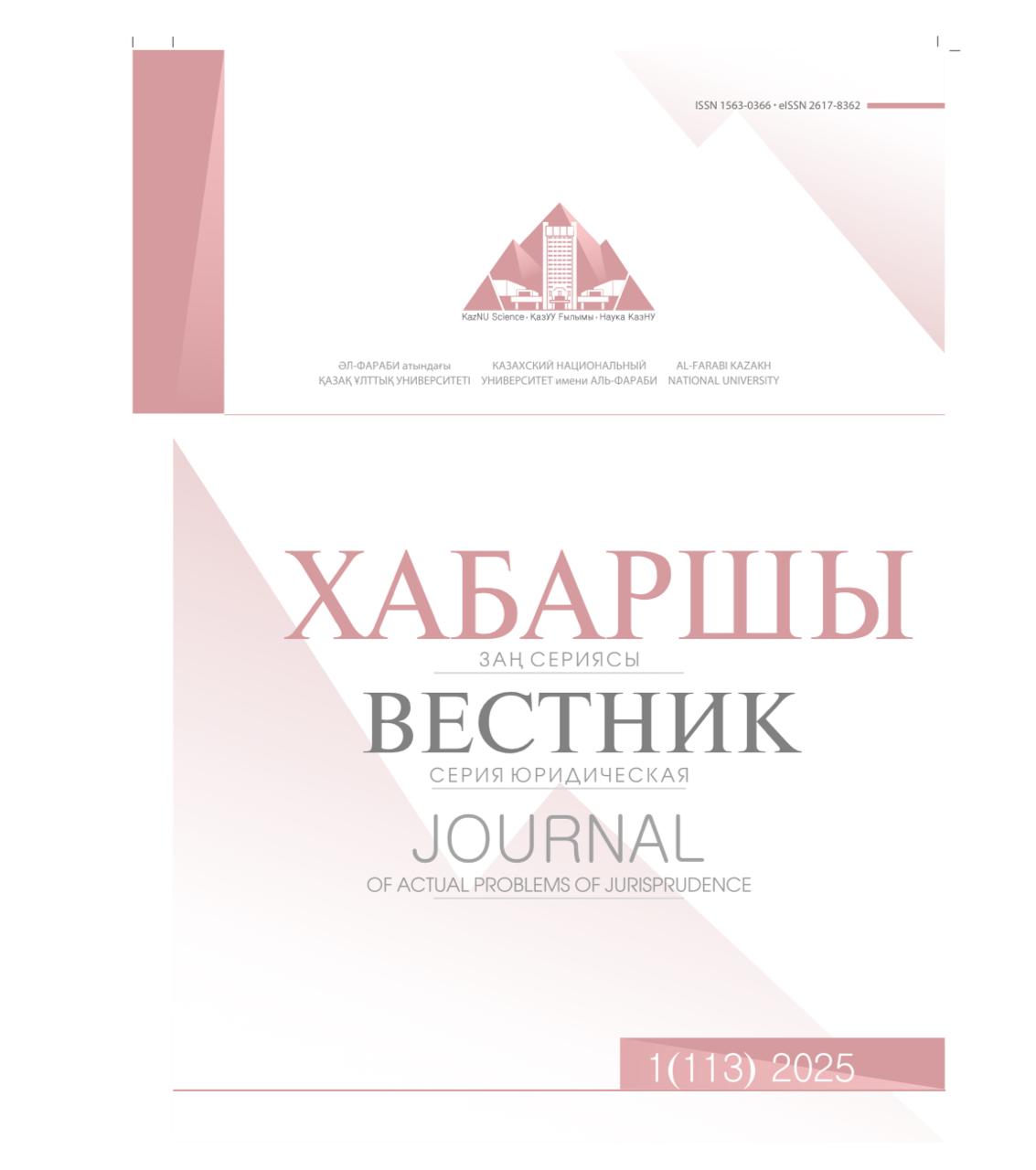LEGAL ASPECTS OF MARTIAL LAW: CONFLICT BETWEEN THE CONSTITUTION AND EMERGENCY POWERS
DOI:
https://doi.org/10.26577/JAPJ202511313Abstract
Martial law is an emergency measure implemented to protect against threats to national security, warfare, or widespread unrest. However, the imposition of such measures often brings about tensions between constitutional principles, which are rooted in the protection of citizens’ rights and freedoms, and the necessity for the expansion of extraordinary powers of the executive authority.
The article comprehensively analyses the legal aspects of implementing a state of martial law. By identifying potential contradictions between constitutional norms and emergency powers, this study examines the issue of ensuring the compatibility of upholding law and order with civil liberties during emergency situations. Additionally, possible solutions and recommendations for addressing such contradictions are proposed.
The article analyses the legislative norms applicable to the declaration of martial law and their practical implementation. Additionally, it investigates the extent to which the rights and freedoms of citizens are restricted or, conversely, expanded in such circumstances. The nature and scale of the extraordinary powers conferred upon the executive during martial law, their legal limitations, and their impact on the balance among the branches of government are also focal points of the discussion.
The concluding section examines proposals and potential solutions aimed at ensuring the compatibility between national security and civil rights. These recommendations focus on the development of effective legal instruments for regulating the state of emergency, as well as enhancing the protection of citizens' rights in line with democratic principles. The article provides practical and theoretical foundations on these significant issues.
Keywords: martial law, constitutional rights, emergency powers, legal conflict, restrictions on rights and freedoms, legislative regulations, martial law as a form of dictatorial government, judicial oversight, parliamentary supervision, national security, democratic principles, law enforcement practices, the rule of law, legal awareness, and legal culture.













